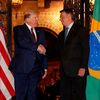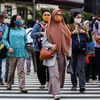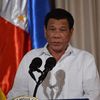North Korea’s Coronavirus Response Alludes to Possible Covid-19 Outbreaks

SEOUL, KOMPAS.com — North Korea’s coronavirus response is reinforcing the notion that the country is far from being virus-free as it claims to be.
Officials stated that North Korea quarantined thousands of people as well as shipping food and other aid to a southern city currently under lockdown.
Despite the stream of North Korean propaganda glorifying the government’s coronavirus response, an exchange between the country and the United Nations is providing new insights and actual numbers.
This provides a better glimpse of the situation in North Korea which has closed its borders and suspended travel.
Read also: Tighter Restrictions in North Korea as Covid-19 Cases Detected
In late July, North Korea said it had imposed its “maximum emergency system” to guard against the virus spreading after finding a person with Covid-19 symptoms in Kaesong city, near the border with rival South Korea.

State media reported that leader Kim Jong Un then ordered a total lockdown of Kaesong, and said the suspected case was a North Korean who had earlier fled to South Korea before slipping back into Kaesong last month.
North Korea’s public admission of its first potential case and the emergency steps it took prompted immediate outside speculation that it may be worried about a big outbreak after months of steadfastly claiming it had no cases.
Foreign experts are highly skeptical of North Korea’s assertion of no cases, in large part because of its long, porous border with China, where the virus emerged, and its history of hiding past disease outbreaks.
In a report to the World Health Organization, North Korea said it has quarantined 64 first contacts of the suspected Kaesong case and 3,571 secondary contacts in state-run facilities for a period of 40 days, according to Dr. Edwin Salvador, WHO representative to North Korea.
Salvador said in an email to The Associated Press that North Korea also informed WHO of the suspected first case, saying the person was tested for Covid-19 but the results were inconclusive.
Salvador said WHO has requested that North Korea share more information about the person.
Salvador said all of North Korea’s borders remain closed, group gatherings are banned, masks are required in public, and all educational institutions, including preschools, are on an extended summer break.
Since the end of December, North Korea has quarantined and released 25,905 people, 382 of them foreigners, Salvador said.
Many outside observers are all but certain the virus has already entered North Korea because it closed its border with China, its biggest trading partner, weeks after the world’s first known virus cases were recorded in China in December.


































